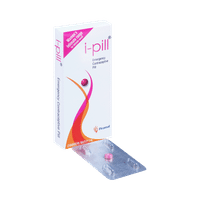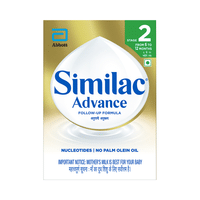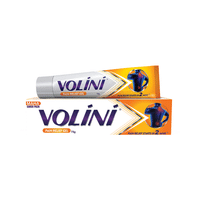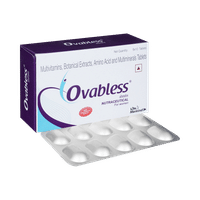Rs.120for 1 strip(s) (10 tablets each)
food interaction for Pregastrong NT
alcohol interaction for Pregastrong NT
pregnancy interaction for Pregastrong NT
lactation interaction for Pregastrong NT
food
alcohol
pregnancy
lactation
Pregastrong NT 75mg/10mg Tablet may be taken with or without food, but it is better to take it at a fixed time.
None
None
CAUTION
Pregastrong NT 75mg/10mg Tablet may cause excessive drowsiness with alcohol.
UNSAFE
Pregastrong NT 75mg/10mg Tablet may be unsafe to use during pregnancy. Although there are limited studies in humans, animal studies have shown harmful effects on the developing baby. Your doctor will weigh the benefits and any potential risks before prescribing it to you. Please consult your doctor.
CONSULT YOUR DOCTOR
Pregastrong NT 75mg/10mg Tablet is probably unsafe to use during breastfeeding. Limited human data suggests that the drug may pass into the breastmilk and harm the baby.
CONSULT YOUR DOCTOR
SALT INFORMATION FOR Pregastrong NT
Pregabalin(75mg)
Uses
Pregabalin is used in the treatment of anxiety disorder, neuropathic pain, seizures and epilepsy/seizures.
How it works
Pregabalin is an antiepileptic medication. When given for epilepsy, it is believed to work by reducing the abnormal electrical activity in the brain, thus preventing seizures. It is also used to treat nerve pain where it blocks pain by interfering with pain signals travelling through the damaged nerves and the brain. For treatment of anxiety, it is believed to work by stopping the release of certain chemical messengers (neurotransmitters) that make you feel anxious.
Common side effects
Peripheral edema, Fluctuating blood pressure, Visual disturbance, Nasopharyngitis (inflammation of the throat and nasal passages), Bronchitis (inflammation of the airways), Anaphylactic reaction, Abnormal ECG, Sleepiness, Weight gain, Dryness in mouth, Blurred vision, Dizziness, Headache, Hypoglycemia (low blood glucose level), Gastrointestinal intolerance, Low blood platelets, Abnormal gait, Joint pain, Stevens-Johnson syndrome, Heart failure, Blood cell abnormalities, Increased creatine phosphokinase (CPK) level in blood, Infection, Gastrointestinal disturbance
Nortriptyline(10mg)
Uses
Nortriptyline is used in the treatment of Anxiety, bed-wetting, depression, obsessive-compulsive disorder, insomnia and neuropathic pain. It is used in patients intolerant of or unresponsive to alternative treatment options for depression.
How it works
Nortriptyline is a tricyclic antidepressant. It increases the levels of chemical messengers in the brain that help in regulating the mood and treat depression.
Common side effects
Decreased libido, Tremors, Constipation, Orthostatic hypotension (sudden lowering of blood pressure on standing), Confusion, Fatigue, Convulsion, Vomiting, Dilatation of pupil, Nausea, Weight gain, Agitation, Taste change, Paresthesia (tingling or pricking sensation), Loss of accommodation, Palpitations, Atrioventricular block, Nasal congestion (stuffy nose), Dryness in mouth, Abnormal ECG, Hypomania, Insomnia (difficulty in sleeping), Ringing in ear, Diarrhea, Rash, Urticaria, Facial swelling, Headache, Involuntary muscle movement, Bone marrow depression, Abnormality of voluntary movements, Erectile dysfunction, Akathisia (inability to stay still)
SUBSTITUTES FOR Pregastrong NT
778 Substitutes
778 Substitutes
Sorted By
 Rs. 257pay 112% more per Tablet
Rs. 257pay 112% more per Tablet Rs. 212.80pay 77% more per Tablet
Rs. 212.80pay 77% more per Tablet Rs. 195.90pay 63% more per Tablet
Rs. 195.90pay 63% more per Tablet Rs. 195pay 62% more per Tablet
Rs. 195pay 62% more per Tablet Rs. 145.31pay 19% more per Tablet
Rs. 145.31pay 19% more per Tablet
Expert advice FOR Pregastrong NT
- Pregabalin should be taken as per the dose and duration prescribed by your doctor.
- It may cause sleepiness. Do not drive or do anything requiring concentration until you know how it affects you.
- It may cause blurring or loss of vision. Inform your doctor immediately if you notice any vision changes.
- Inform your doctor if you develop any unusual changes in mood or behavior, new or worsening depression, or suicidal thoughts or behavior.
- Do not stop taking the medication suddenly without talking to your doctor as it may worsen your underlying condition.
- You have been prescribed Pregabalin for treating and preventing nerve pain caused by diabetes and shingles.
- It may also be used for the treatment and prevention of seizures.
- Take it only as per the dose and duration prescribed by your doctor.
- It may cause sleepiness. Do not drive or do anything requiring concentration until you know how it affects you.
- Avoid consuming alcohol when taking Pregabalin, as it may cause excessive sleepiness or drowsiness.
- It may cause blurring or loss of vision. Inform your doctor immediately if you notice any vision changes.
- Inform your doctor if you develop any unusual changes in mood or behavior, new or worsening depression, or suicidal thoughts or behavior.
- Do not stop taking the medication suddenly without talking to your doctor as it may increase the seizure frequency.
Frequently asked questions FOR Pregastrong NT
Pregabalin
Q. What is Pregabalin and what is it used for?
Pregabalin belongs to the anticonvulsants class of medicines. It is used to treat seizures. It is also helpful in treating nerve pain (neuropathic pain) which could be due to diabetes, shingles, or injury. It is also used in fibromyalgia (a long-lasting condition that may cause pain, tiredness, muscle stiffness and tenderness as well as difficulty falling or staying asleep. In some cases, your doctor may prescribe this medicine for the treatment of anxiety.
Q. Pregabalin has varied roles. Does it work in the same way for each disease?
No, Pregabalin works in different ways for different diseases. In epilepsy, it stops seizures by reducing the abnormal electrical activity in the brain. In chronic pain, it blocks pain messages travelling from brain to spine.
Q. I have been prescribed Pregabalin for pain due to shingles. When can I expect relief from pain?
It may take a few weeks to see full benefits while taking Pregabalin. However, people have experienced relief from pain after a week of starting Pregabalin.
Nortriptyline
Q. What is Nortriptyline used for?
Nortriptyline is used to treat depression and nocturnal (night time) bedwetting in children. It restores the chemical imbalance in the brain and enhances mood and behavior. In some cases, it may also be prescribed to relieve neuropathic (nerve) pain.
Q. Can I take Nortriptyline for nerve pain? How do I know if I have nerve pain?
Yes, Nortriptyline can be taken for nerve pain. Your doctor may prescribe this medicine in combination with gabapentin. Nerve pain (or neuropathic pain) is commonly described as a shooting, burning or stabbing type of pain that may be associated with tingling, numbness or a pin and needles like feeling. The pain may be spontaneous which means it may be triggered without the presence of any stimulating factor. Additionally, you may experience an increase in the sensitivity to touch. Consult your doctor if you experience such pain.
Q. What are the side effects of Nortriptyline?
The side effects of Nortriptyline are increased heart rate, weight gain, difficulty in urination, orthostatic hypotension (sudden decrease in blood pressure on standing), dryness in mouth and constipation. Please consult your doctor if these side effects do not go away or worry you.























